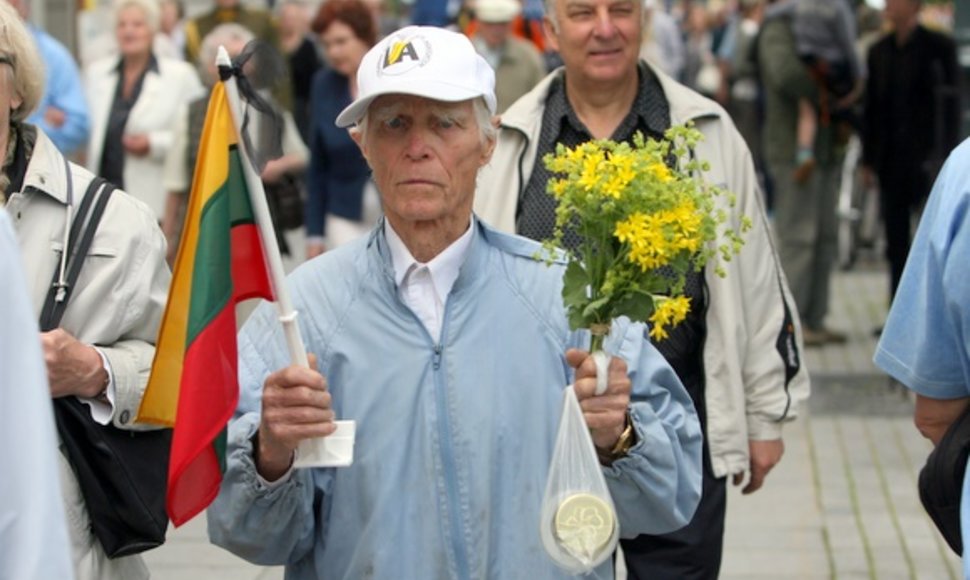"Mourning and hope so often go side-by-side in Lithuania's history. Mourning for those killed, and hope for those ready to protect their Homeland. 14 June went down to history as a night of horror and pain. Lithuanian people condemned without any guilt were put into cattle wagons and taken to uncertainty. But this tragedy inspires us today not to lose hope. To remain loyal to ourselves, to our values, and, most importantly, to Lithuania even in the darkest night," Grybauskaitė said in a statement on Thursday.
During the first Soviet occupation in 1940-1941, around 23,000 Lithuanian residents were jailed, killed or deported. In 1944 the Soviets returned to Lithuania. During the next decade 186,000 people were detained and jailed, 118,000 were deported and over 20,000 anti-Soviet partisans and their supporters were killed.
Country still recovering from occupation
Lithuanian Prime Minister Andrius Kubilius has said that Lithuania is still dealing with consequences of five decades of the Soviet occupation.
According to Kubilius, the 14 June remains an open wound.
"It's a very painful day, and it's still an open wound after 70 years, reminding us of what our parents and grandparents had to go through. And I would simply call it an occupation pain day. The occupation of 50 years has definitely left a lot of painful consequences, and we are still dealing with those consequences even after 20 years of independence," the Lithuanian prime minister said in an interview to the Žinių Radijas (News Radio).
"This day is a day when we stop and remember the deportations, post-war partisans, we remember members of the resistance, and, finally, we remember those broken lives and the broken fate of our country, and how hard it has been for us to stand up and join the European, the Western life. We can see those consequences everywhere, starting from our own way of thinking to economic things, and even in the very sphere of energy we are still coming out of what we were forced into by force and in a bloody way over those 50 years," Kubilius said.





















